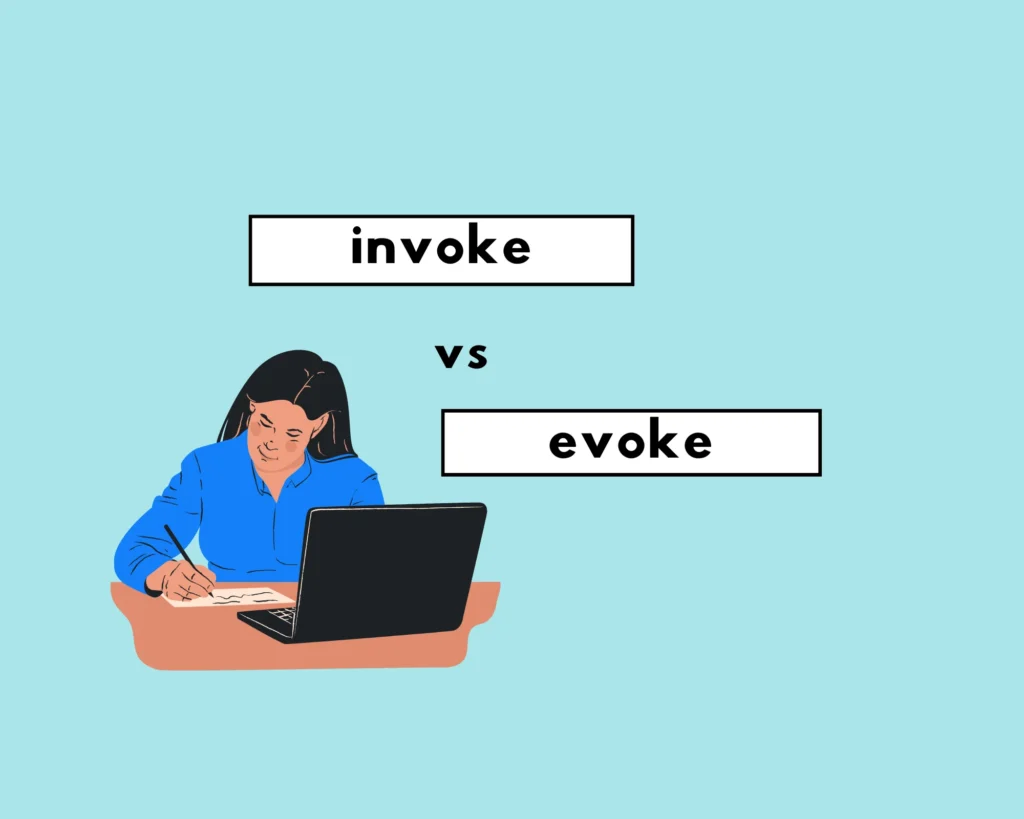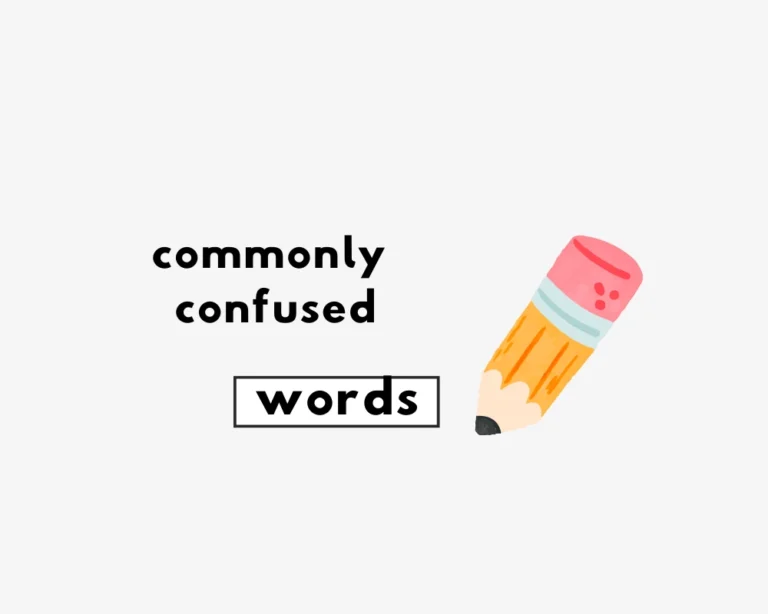The difference between “evoke” and “invoke”
Evoke and invoke are both transitive verbs with the same Latin root word, vox, meaning “voice“. Both have to do with “calling forth” something, but how they differ is in what it is that they call upon, about, or towards:
- Evoke mainly refers to calling forth emotions, feelings and memories; e.g., “visiting my childhood home evokes bittersweet memories and feelings“.
- Invoke is often calls upon a formal authority, institution or law; as in to “invoke your constitutional rights“, or rights to an attorney.
| examples with “evoke” | examples with ‘invoke” |
| The novel’s ending evoked a feeling of loneliness in me. | The article invokes numerous scholars to help support its argument. |
Evoke could be replaced with words or phrases, such as, brought about, gave rise to, caused, arose, and so forth.
“Evoke”, “invoke” and “provoke”
Provoke is another word (and verb) that sounds and is spelled similar to invoke and evoke, (can you guess the pattern?)
They all share the same Latin root word; i.e., vox meaning voice. However, provoke differs from its homophonic counterparts in that it describes purposely stirring up, or aiming to bring about a reaction or emotions from others, mostly in a negative sense. Take the phrase, “don’t provoke them“; this is similar to saying don’t upset or anger them.
Evoke and provoke are synonyms; that said, evoke is less forceful and applies more broadly in terms of the sorts of feelings or memories it refers to.
Sentence examples with “invoke”
Police can invoke the law to regulate access to these places.
RCMP, 1985.
Their sacred dance is performed to invoke ancient gods.
Regulators said they would invoke legal powers to enforce the change.
Old radio programs may invoke comforting memories of the past.
The UN threatened to invoke economic sanctions if the talks were broken off. (UN Chapter VII.)
Sentence examples with “evoke”
That smell always evokes memories of my old school.
‘A detergent designed to evoke the fresh smell of summer meadows.’
“The sight of American asters evokes pleasant memories of childhood”
Peaches evoke memories and bring out the best of summertime activities.
It’s going to the edge to spontaneously improvise and evoke the inner spirit.
Synonyms for “invoke”
The following list of words and phrases have a similar meaning with invoke, and can be used in similar contexts in writing:
- Bring about
- Yield
- Bring rise to
- Generate
- Induce
- Prompt
- At any moment
- Produce
- Effect
- Effectuate
- Bring on
- Cause
Practice using the verb in different tenses with example sentences to memorize the correct forms.
Synonyms for “evoke”
The following list of words and phrases have a similar meaning with evoke and can be used in similar contexts. Like with all synonyms, make sure to use the appropriate word given the context.
- Elicit
- Extract
- Arouse
- Conjure
- Provoke
- Educe
- Evince
- Rouse
- Raise
Origin of invoke
Invoke derives from the Latin invocare “call upon, implore.” Invocare is a compound of vox, which means voice in Latin; and the Latin word ‘in’ meaning “upon”.
Origin of evoke
From Latin evocare “call out, rouse, summon.”
In review: evoke and invoke
It makes sense that invoke and evoke are often confused with one another, since they overlap in their meaning and sound similar to each other. Again, this is because they derive from the same Latin root word for voice: vox. Invoke refers to calling upon an authority, or bringing it into effect. Evoke describes the resurfacing or bringing up of a feeling, memory, thought, emotion or spirit.
Read about other confusing words
- Is it Elude or Allude?
- When To Use Infer vs. Imply
- Is it Allot, A lot or Alot?
- Which is it: Allusion or Illusion?
- Insure, Ensure or Assure?
- Averse or Adverse?
Worksheet
Question 1: Which is most important for proper grammar?
Question 2: Grammar rules help with:
Question 3: What is the main focus of this grammar content?
Question 4: Which is most important for proper grammar?
Question 5: Grammar rules help with:
Question 6: What is the main focus of this grammar content?
Question 7: Which is most important for proper grammar?
Question 8: Grammar rules help with:
Question 9: What is the main focus of this grammar content?
Question 10: Which is most important for proper grammar?
Which aspect is most important when learning grammar?
How can you improve your grammar skills?











